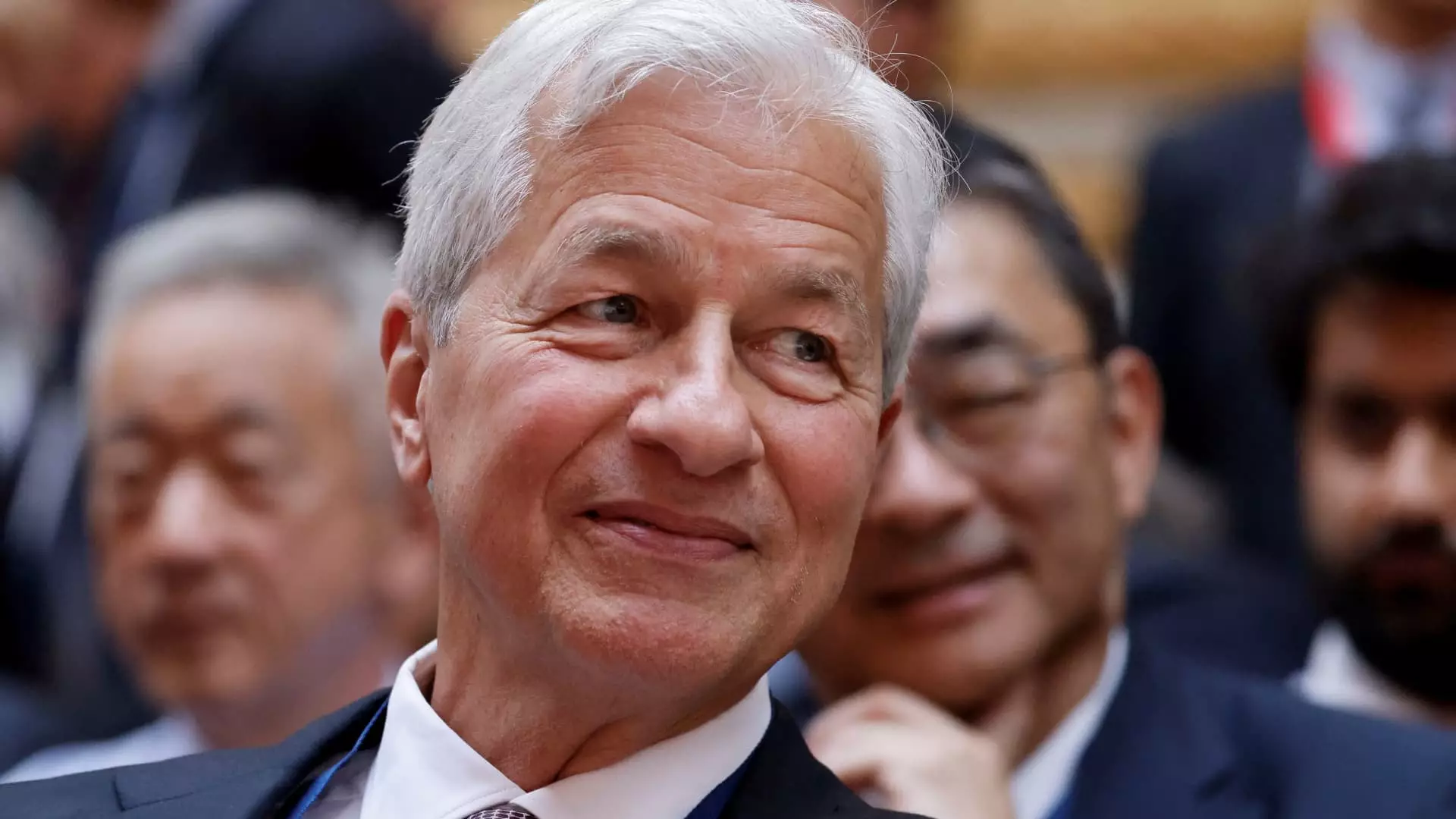In a landscape often dictated by short-term gains and stock performances, JPMorgan Chase finds itself at a crossroads, grappling with a formidable excess of capital. With an astounding $35 billion surplus on its hands, the banking giant is facing increasing scrutiny from both investors and financial analysts regarding its strategy for managing this substantial cash reserve. In a recent discussion, Chief Financial Officer Jeremy Barnum indicated that this growing pile of excess capital is a “high-class problem,” but it raises essential questions about the best course of action for the future.
The bank’s executives, cognizant of shareholder expectations, have announced plans to escalate share buybacks. This decision responds strategically to the challenge of excess cash, aimed at preventing further accumulation. In light of the bank’s robust profit and revenue numbers over the past year, it appears that the financial institution is attempting to balance investor satisfaction with prudent financial management. Barnum’s remark suggests an inclination towards returning capital to shareholders through buybacks unless immediate opportunities for organic growth materialize. This tension reflects a broader challenge faced by financial institutions—how to effectively balance capital return with investment in future growth.
To deepen this inquiry, one must consider the context of the excess capital accumulation. Historically, Banks like JPMorgan have stockpiled cash reserves in preparation for stringent regulatory requirements, particularly those laid out in the Basel III framework. However, with shifting regulatory landscapes, including potential relaxations anticipated under the incoming administration, JPMorgan’s accumulated capital presents both an opportunity and a risk. The bank’s leadership must navigate a dual mandate: addressing shareholder desires for immediate returns while simultaneously preparing for potential economic turbulence.
The market’s reaction to JPMorgan’s stock performance adds another layer to this complex scenario. With the share price increasing significantly since CEO Jamie Dimon’s cautious remarks concerning stock buybacks, the organization finds itself in a precarious position. Dimon had argued against reducing their cash pile at elevated prices, indicating a philosophy that emphasizes long-term value over superficial gains. This outlook becomes particularly significant as the share price realization indicates a healthy increase, but it concurrently complicates the decision to reinvest in stock buybacks.
Barnum has articulated the prevailing “tension” permeating both the investment landscape and the broader economy, creating an atmosphere of uncertainty. With oncoming economic challenges hinted at by Dimon and other bank executives, a cautious approach seems prudent. While an economic downturn might appear threatening, it could potentially open doors for prudent capital deployment, allowing JPMorgan to strengthen its position in the market. According to analyst Charles Peabody, the silver lining of a recession could position JPMorgan favorably, regularly gaining market share when its competitors experience strain.
The question of how JPMorgan will evolve its strategy remains pertinent. Investors eager for immediate returns face a delicate landscape where company growth and shareholder satisfaction often intersect uneasily. The potential for upcoming economic challenges highlights the necessity for financial institutions to remain nimble, responsive to both shareholder concerns and external economic cues.
JPMorgan Chase’s current predicament is multifaceted, positioning it between immediate shareholder demands and prudent long-term financial planning. As the bank navigates this complicated landscape, its decisions surrounding buybacks and capital allocation will likely play a pivotal role in shaping its future trajectory. The manner in which it manages its excess liquidity while preparing for a dynamic economic environment could serve as a crucial indicator of its resilience and strategic foresight in the banking sector. The balancing act of maintaining investor trust while ensuring sustainable growth will remain at the forefront of JPMorgan’s operational philosophy as we advance into potentially turbulent economic times.

